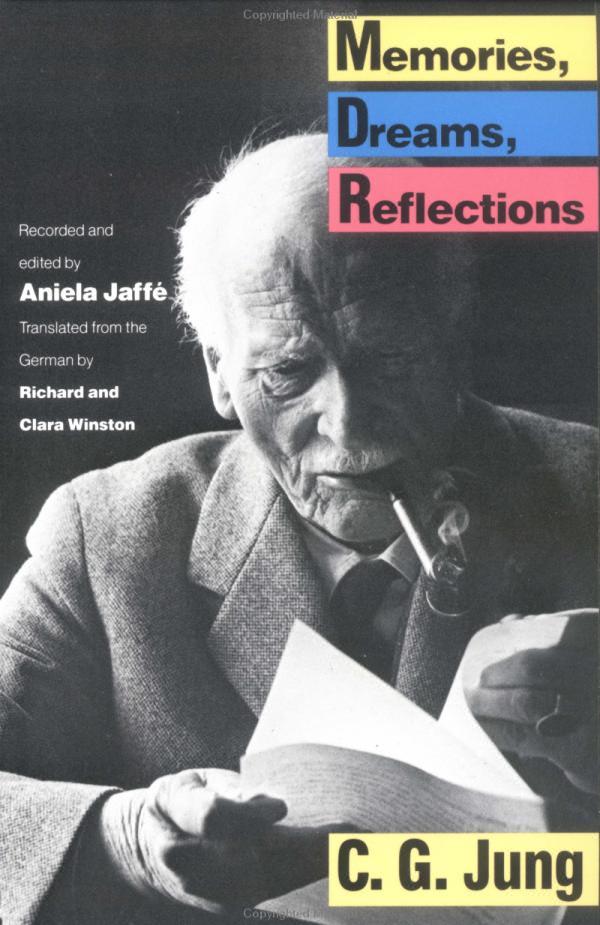
The Undiscovered Self
Book Description
What lurks beneath the surface of the human psyche? In 'The Undiscovered Self,' C.G. Jung plunges into the depths of individuality and collective consciousness, exploring the tension between personal identity and societal norms. This captivating journey unveils the shadows that shape our lives and examines the urgency of self-knowledge in a world rife with conformity. Jung's profound insights challenge the reader to confront their own hidden facets and recognize the transformative power of embracing the self. Can humanity truly evolve while remaining blind to its own depths?
Quick Book Summary
"The Undiscovered Self" by C.G. Jung is a thought-provoking exploration of the intricate dynamics between individuality and the collective forces that shape human behavior. Jung examines how the pressures of conformity, mass society, and political ideologies threaten authentic selfhood, urging readers to engage in deeper self-understanding. He warns against the dangers of group identity suppressing personal insight, emphasizing the psychological consequences of denying one's unique inner landscape. Jung underscores the importance of confronting the "shadow" — the unknown or ignored aspects of ourselves — and insists that meaningful change in society occurs only when individuals strive for self-awareness and integration. Through his sharp critique of modernity and collective movements, Jung invites readers to discover the hidden depths within themselves as the foundation for genuine transformation and resistance to totalitarian influences. The book is a call to embrace one's individuality amidst the pressures of a conformist world.
Summary of Key Ideas
Table of Contents
The conflict between individuality and mass society
Jung opens by highlighting the profound tension between the individual's quest for self-realization and the collective demands imposed by mass society. He observes that as people become more integrated into groups—be it political, religious, or social—they risk losing touch with their true selves. Jung argues that modern civilization tends to suppress the individual, favoring uniformity and obedience over personal insight and authenticity. The resultant alienation and misunderstanding lead to psychological instability and pave the way for the rise of authoritative movements that exploit the human need for belonging.
The danger of ideological conformity
A central theme explored is the threat of ideological conformity and its impact on the psyche. Jung warns that ideologies, particularly those backed by mass movements, seduce individuals into sacrificing individual conscience for group allegiance. He discusses how the mechanization of thought under totalitarian regimes or aggressive political propaganda diminishes critical self-reflection and personal morality. According to Jung, such conformity stifles creativity and independent judgment, making society vulnerable to manipulation and dehumanization.
The significance of the unconscious and the shadow
Jung delves into the vital role of the unconscious, particularly the "shadow" — the repressed, unknown aspects of the psyche. He explains that failing to acknowledge or integrate the shadow can lead to projection, where individuals see their own denied traits in others, fueling conflict and division. The process of individuation, or becoming fully oneself, requires confronting and accepting these hidden elements. Jung asserts that only by making the unconscious conscious do individuals gain freedom from compulsive patterns and achieve psychological wholeness.
The importance of self-knowledge for transformation
Self-knowledge, in Jung’s view, is not merely a private pursuit but a societal imperative that guards against the destructive potential of collective movements. He criticizes the overreliance on science and external institutions to address problems originating within the human soul. Jung urges readers to turn inward, engage with their inner world, and cultivate a deeper understanding of personal motives and fears. This self-exploration is positioned as the antidote to mass-mindedness and moral disengagement.
The individual as the agent of societal change
Ultimately, Jung holds that social transformation is rooted in the inner work of individuals rather than external reforms. If individuals can overcome fear, confront their shadows, and cultivate authentic self-awareness, they become less susceptible to authoritarian manipulation and more capable of contributing meaningfully to society. For Jung, the undiscovered self is both the primary challenge and hope for humanity — a call to awaken to one’s true nature and embrace the responsibility of inner growth as the foundation for lasting change.
Download This Summary
Get a free PDF of this summary instantly — no email required.





